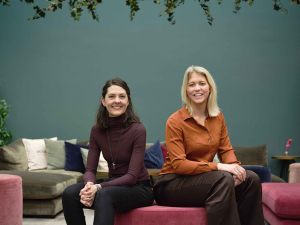-
Home
-
About ProcessTeknik
-
Activities
-
Plan your visit
-
For Exhibitors
-
Do you view sustainability from a business perspective?
 Xvii helps companies to make sustainability a viable proposition with a focus on the business potential. Many companies experience challenges when it comes to translating what the circular economy and corporate sustainability goals mean and how they can be realised in different parts of their business. All companies need to justify or change their choices in product, process and business development from a sustainability perspective. The way forward involves understanding society and technological developments as well as one’s own business and its opportunities and risks.
Xvii helps companies to make sustainability a viable proposition with a focus on the business potential. Many companies experience challenges when it comes to translating what the circular economy and corporate sustainability goals mean and how they can be realised in different parts of their business. All companies need to justify or change their choices in product, process and business development from a sustainability perspective. The way forward involves understanding society and technological developments as well as one’s own business and its opportunities and risks.
The consultancy Xvii was founded by Karin Nyberg and Taina Flink, who, with their dual competencies in sustainability and the circular economy coupled with product and business development, have a unique and in-depth insight into what needs to change in relation to companies’ customer offerings. Taina and Karin argue that sustainability cannot be compartmentalised. To be implemented, it must be integrated with business operations in their entirety and adapted to each company and each sub-area.
– We have identified a clear need that exists in many companies. They want to improve but are not sure how to go about it. It’s not easy to translate companies’ overall sustainability goals into what it means for business and product development. Many companies’ biggest environmental impacts are in the physical products they make and how they are used, but the company has not yet factored this into their environmental footprint or started to measure their progress in this respect. In many cases this is difficult, also because they may not own the entire manufacturing chain. Now raw material prices are rising, and customer awareness is increasing, so many people need help to find sustainable solutions from a product and business perspective, and we have that knowledge, Taina says.
“What is the ‘best-before’ date on what you are doing today?”
Many companies work on sustainability from an internal perspective, but it’s important not to get stuck there. Working on sustainability from a business perspective means analysing your operations in light of the changing environment and what is most important to develop in terms of your offering to customers – in other words, where you spend the majority of your time and investment.
– To integrate sustainability into your business, there are some important questions you need to ask yourself: what does sustainability really mean for your business? What is the ‘best-before date’ of what you are doing today? What will soon become expensive and what are the opportunities for us given the changes that need to happen? How will the customer offering need to evolve going forward? Karin asks.
Implementing the circular economy
Xvii is working with Ikea on a project in Malmö. It involves a second-hand hub where used Ikea furniture is collected and then resold.
– In the Ikea project, one of our consultants is working on Ikea’s business experiment of buying used products and reselling them. Ikea has always been a leader in its business concept of selling affordable products in flat-packs and in large volumes. Now that they are exploring second-hand sales, there is a lot that needs to change in terms of routines, processes, logistics and sales, so it’s very hands-on, Karin explains.
At another client, a chain of stores in the home decoration and renovation sector, the work is instead about training employees and changing customer behaviour.
– This customer is not responsible for product development or design. However, the customer’s employees have the opportunity to advise and educate their customers, thus enabling more sustainable choices, Taina says.
ProcessTeknik 2022
Xvii will take to the stage at ProcessTeknik 2022. During their session, they will discuss challenges and use real-life case studies to illustrate potential solutions. It will include a presentation, a guest appearance by one of their customers and a panel discussion.
– We want to highlight new ways of thinking and help the audience not to get stuck in the mindset of ‘this is something we can’t influence’ or ‘this is how we’ve always done it’. We want to show that we are moving into a new, circular, business logic that people need to learn to take advantage of. It will be costly not to become radically more resource-smart, both in your products and throughout the value chain, and the sooner you jump on this bandwagon the better off you will be, Karin concludes.